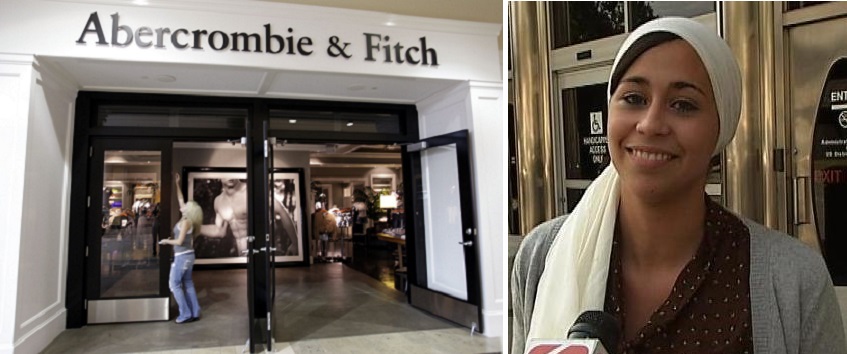
Seven Orthodox Jewish groups, a Muslim civil rights organization and a public interest law firm supporting religious freedom filed briefs this week with the U.S. Supreme Court supporting a Muslim teenager who was denied a job at Abercrombie & Fitch because she wore a head scarf.
Samantha Elauf was 17 when she was rejected by a Tulsa, Okla., branch of the clothing store.
Employees acknowledged that she was turned down because her scarf didn’t meet the company’s “look policy” that requires its sales staff to be in keeping with its “classic East Coast collegiate style of clothing,” according to court filings.
The company said its employees did not know she wore the hijab for religious reasons.
Nathan Lewin, who filed a friend of the court brief for the Orthodox Jewish groups, said: “This is a common experience that a lot of other Sabbath observers or people wearing yarmulkes have had in terms of applying for a position and being turned down because it is just a nuisance to employers.”
“It is important that these Orthodox Jewish groups express support for this Muslim woman who has had a similar experience,” he said.
The high court’s ruling could affect Orthodox Jews who wear head coverings and tunics, said Rabbi Gershon Tannenbaum, director of the Rabbinical Alliance of America, one of the Orthodox groups who joined the brief. “We are looking at a possible infringement of the freedom of religion,” he said. “That has big repercussions. It has to be resolved.”
The U.S. Equal Employment Opportunity Commission sued the retailer on Elauf’s behalf and won a $20,000 verdict for violations of federal civil rights law. But the award was thrown out by the U.S. appeals court in Denver, which said the company was not liable because the teenager did not explicitly ask for a religious accommodation.
The Supreme Court agreed to hear the case in October.
It now has to determine whether a job applicant is required to explicitly inform an employer that their clothing or hairstyle is religiously motivated and requires an accommodation, said William Burgess, a staff attorney for the Council on American-Islamic Relations, which filled an amicus brief in support of Elauf.
“Members of any religion that need an accommodation will be put in a bad situation if in job interviews they have to ask for them,” he said. “That gives employers a reason to chose another applicant.”
The Washington, D.C.-based Becket Fund for Religious Liberty also has filed a brief asking the high court to vacate the decision by the appeals court. “Abercrombie should know that it can’t discriminate against people simply because they haven’t worn a sign that says, “Hey, I am religious,'” said Eric Baxter, senior counsel for the fund.
